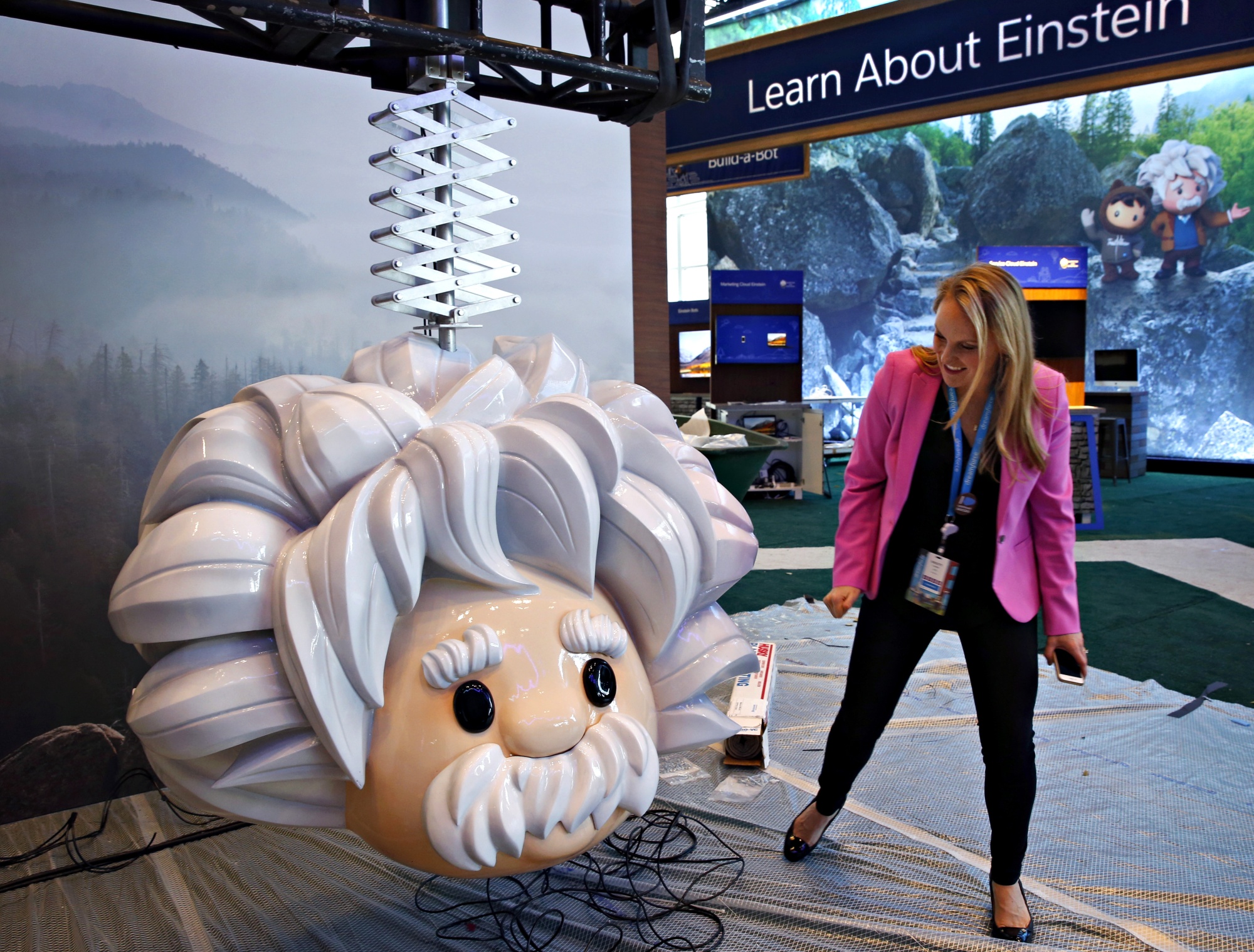
Por Contxto
March 28, 2024
In a notable event, Salesforce even set a Guinness World Record for the “Largest Gathering of People Dressed as Albert Einstein,” highlighting its innovative marketing approach.
This licensing agreement, aimed at infusing trust and ethical considerations into Salesforce’s AI offerings, directly benefits the Hebrew University of Jerusalem, to which Einstein bequeathed his intellectual property.
The choice of Einstein aligns with Salesforce’s narrative around the safety and reliability of its AI products amidst the competitive landscape with giants like OpenAI and IBM’s Watson. With Einstein as a symbol, Salesforce positions its AI as forward-thinking yet secure, advocating for responsible use amidst industry debates on AI ethics.
This comes as the company challenges the dominance of other large language models, promoting a safer deployment of AI technologies through its “Einstein Trust Layer,” which filters potentially harmful content from AI outputs.
Salesforce’s utilization of Einstein’s likeness reflects a broader strategy to convey AI’s potential responsibly. CEO Marc Benioff’s push for Einstein’s branding, despite initial internal skepticism, exemplifies Salesforce’s commitment to combining technological innovation with ethical stewardship.
The company’s marketing efforts, including campaigns featuring Matthew McConaughey, further emphasize the need for caution and understanding in the AI “wild west.” Salesforce’s endeavor to link its AI tools with Einstein’s trusted image aims to reassure customers of the ethical application and significant potential of its AI capabilities.

Por Yanin Alfaro
February 17, 2026

Por Israel Pantaleón
February 17, 2026

Por Stiven Cartagena
February 13, 2026